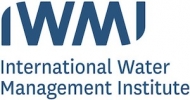Irrigation and in particular large public irrigation schemes are often criticized for mortgaging the future of ecosystems services. Some would even go so far as to argue that the problems of salinity and waterlogging, degrading the ecosystem are an inevitable consequence of irrigation. This research addresses a problem in the Aral Sea Basin, namely degrading of ecosystems services through waterlogging and salinity. The area of the waterlogged soils alone in Uzbekistan is estimated at 2.47 M ha (~60% of total) and the salt affected is 2.43 M. ha (~60% of total). The objective of this project is sustainable intensification of water management in salt-affected irrigation scheme areas based on healthy functioning ecosystems with minimum return flow to the natural watercourses. The study tests technologies for reducing return flows to the natural water courses of the Central Asia. Specific objectives are examining changes of return flow quantity and quality and its impact on river water quality. In Uzbekistan, the traditional practice of saline land amelioration in Central Asia consists of heavy winter leaching of salt-affected soils and intensive drainage. In many cases drainage flow returns to the rivers and affects the provisioning ecosystem services in the downstream. Recent increasing irrigation water deficit multiplied evaporation from shallow water table followed by accumulation of salts in the topsoil. The Government has tried to reduce the water losses by rehabilitating the canal system and improving the drainage to increase the return flow. However these costly measures do not guaranty sustainable farming practices on salt affected soils and continue affecting to provisioning ecosystems downstream. This study focuses on: (1) evaluating enhances of the provisioning services by improving salinity management practices in Central Asia; (2) evaluating the impact of irrigation system rehabilitation projects on soil salinity levels; (3) evaluating the impact of alternative methods of salinity management, including sub-surface evaporation basin and cultivation of licorice on salt-affected abandoned soils on ecosystem services and healthy functioning ecosystems. Wide scale adaption of licorice technology of reclamation is limited due to planting of roots which require significant labour and high investment and time consuming. During this stage alternative technologies will be tested to increase germination of seeds of licorice. Subsurface evaporation basin will be modelled using Hydrus 2D.
menu











